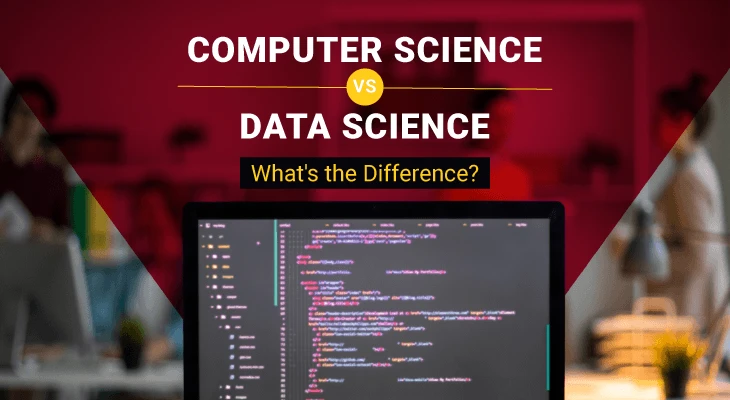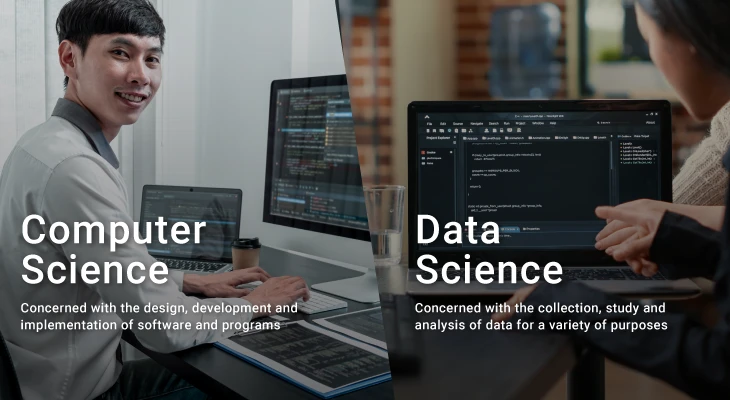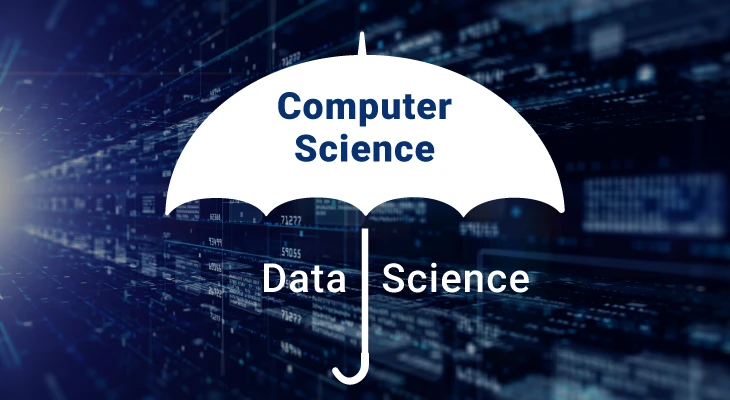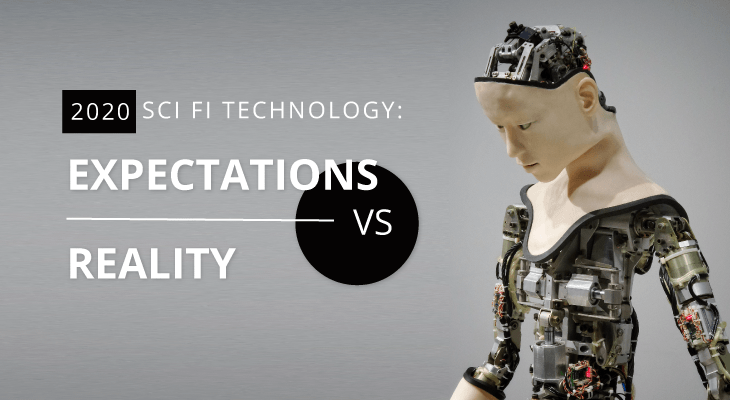Computer Science vs Data Science: What's the Difference?
Is data science the same as computer science, considering that they both have programming? We explore the similarities and differences between the two here.
Updated 20 Dec 2022

If you’re new to the field of computing, you may be wondering what the difference is between computer science and data science. Is data science the same as computer science, considering they both have elements of programming and algorithms? Or is there more than meets the eye?
If you’re struggling to decide whether to choose data science or computer science, here’s a basic rundown to help you decide.
#1. Computer science is about the development of software and programs while data science is about working with data

The first major difference between the two fields is what it is essentially about.
Computer science is a major computing field which is concerned about the design, development and implementation of software and programs. It is focused on improving computer usage and solving computing problems through software and systems.
Data science, on the other hand, is a field of study concerned with data. It utilises computer science, mathematics and information systems, among other disciplines, to collect, store, study and analyse data for a variety of purposes including optimising business operations and services.
The two fields may intersect and share certain traits but they have distinct focuses.
#2. Data science is a sub-field under computer science

As a field of study, computer science is one of the four major computing fields; the other three are software engineering, information technology and information systems. All other computing disciplines (e.g. cybersecurity) will fall under one of these four fields.
In contrast, data science is an interdisciplinary field that combines mathematics and computing. Under the computing umbrella, data science is considered a specialisation under computer science as computer science offers the tools to store, access and process data.
In addition, in Malaysia specifically, degrees in data science must be awarded based on the computer science discipline (e.g. Bachelor of Computer Science (Data Science)). From a practical standpoint, this helps data science graduates maximise their employment options in the area of computing.
So, if you’re planning to study data science, make sure you’re looking at the correct programme. Not all computer science programmes focus on data science. But most, if not all data science programmes, will feature some elements of computer science in their study.

Monash University Malaysia
Bachelor of Computer Science
✓Ranked #62 in the world for Computer Science and Information Systems (QS World University Rankings by Subject 2025)
#3. Computer science has a wider scope compared to data science

Computer science is a vast field encompassing areas such as operating systems, graphics and visualisation, programming languages, and cybersecurity. In addition, you’ll also learn topics that overlap with data science, such as intelligent systems / artificial intelligence, data structures and data management, and algorithms and machine learning, though in a less comprehensive manner. This makes computer science a great option if you want to explore a broad range of subdisciplines.
Data science, on the other hand, is more focused. Specialising in the field will expose you to a variety of data-related modules such as intelligent systems, statistical modelling, data mining, advanced machine learning, and analysis and presentation. While you will learn other computing components, your syllabus will focus mostly on the field of data.
When deciding which field to pursue, ask yourself this — do you want to cover a wider range of computing fields or do you want to focus specifically on data science?

#4. Your job prospects may be different

As a computer science graduate, you can explore a variety of career opportunities. Jobs such as applications developer, web developer, software engineer, machine learning engineer, cybersecurity analyst and game developer will be open to you.
Since data science is more focused towards data, you will thrive best when you focus on jobs related to the data field. Your options include data scientist, data analyst, big data engineer, data architect, machine learning engineer and artificial intelligence (AI) engineer.
Since the two fields are connected, it’s not impossible to go from a computer science degree to a career in data science and vice versa. However, if you are sure about your decision to pursue a career in data science, then perhaps it’s best to specialise in that field early on.
#5. Data science can also be offered as a programme under mathematics

While both programmes are typically considered and treated as part of the computing field, data science is not exclusively a computing specialisation. Some universities may also offer data science as a programme under the mathematics and actuarial science field (e.g. Bachelor of Science in Data Science). This is due to the interdisciplinary nature of data science that combines computer science, mathematics and statistics.
As a data scientist, you’ll need to know how to choose fitting mathematical models to process and analyse data. This is where mathematics and statistics come in as the tools and models often include an understanding of calculus, linear algebra, probability theory and discrete maths.
So what does this mean?
If you’re looking to study data science, you can either choose to study it as a computer science degree or a mathematics degree. The difference is that the former may consist of other computing elements (e.g. artificial intelligence, data security, networks) while the latter will give you greater mathematical foundation and knowledge in statistical models. Regardless, both will cover the key aspects of data science and enable you to pursue a career as a data scientist.
Apply for university with EduAdvisor
Secure scholarships and more when you apply to any of our 100+ partner universities.
Start nowSo there you have it. The differences between the two fields may be small but it’s still significant enough to take note of. A useful thing to remember is that computer science covers a wider scope while data science focuses mostly on data. Essentially, it boils down to this — do you have a broad interest in the computer science field or are you set on working in the data science field?






